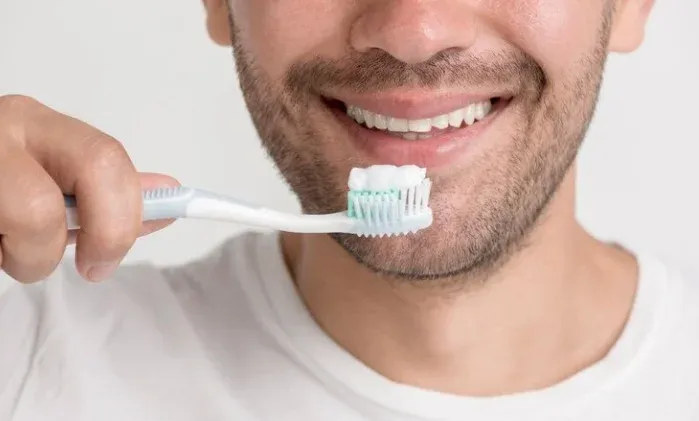Tooth Extraction Pain After 7 Days: Causes, Solutions & When to Worry (2026 Guide)
Experiencing some discomfort after a tooth extraction is completely normal, but if you’re dealing with significant…
Experiencing some discomfort after a tooth extraction is completely normal, but if you’re dealing with significant pain a full week later, it’s time to pay attention. While most extraction sites heal smoothly within the first few days, persistent or worsening pain after 7 days can signal complications that need professional evaluation.
In this comprehensive 2026 guide, we’ll walk you through what’s normal, what’s not, and exactly what steps to take if you’re still hurting a week after your procedure. Whether you had a simple extraction or a complex wisdom tooth removal, understanding your symptoms can help you get the relief you need faster.
Understanding Normal vs. Concerning Pain After Tooth Extraction
During the first 72 hours following an extraction, it’s typical to experience moderate pain, swelling, and tenderness around the extraction site. This discomfort should gradually decrease each day as your body forms a protective blood clot and begins the healing process.
By day seven, most patients report minimal discomfort—perhaps a dull ache or slight sensitivity when chewing. However, if your pain is increasing rather than decreasing, or if it’s accompanied by fever, severe swelling, or a foul taste in your mouth, these are red flags that shouldn’t be ignored.
Why it helps: Provides fast-acting numbing relief directly at the extraction site to manage breakthrough pain while healing.
Top 5 Causes of Tooth Extraction Pain After 7 Days
1. Dry Socket (Alveolar Osteitis)
Dry socket is the most common complication causing severe pain days after extraction. This condition occurs when the blood clot that should protect the extraction site becomes dislodged or dissolves prematurely, exposing the underlying bone and nerve endings to air, food, and bacteria.
Symptoms of dry socket typically include:
- Intense, throbbing pain that radiates to your ear, eye, or neck
- A visible empty socket where the blood clot should be
- Bad breath or foul taste in your mouth
- Pain that worsens 3-5 days after extraction rather than improving
Dry socket is more common with lower wisdom teeth extractions and occurs in approximately 2-5% of routine extractions. If you suspect dry socket, contact your dentist immediately—they can clean the socket and place a medicated dressing that provides almost instant relief.
2. Infection at the Extraction Site
Bacterial infections can develop when bacteria enter the wound during or after the procedure. While your dentist takes precautions to prevent this, infections can still occur, especially if post-operative care instructions aren’t followed carefully.
Signs of infection include:
- Increasing pain and swelling after the first few days
- Fever above 100.4°F (38°C)
- Pus or discharge from the extraction site
- Swollen lymph nodes in your neck
- Difficulty swallowing or breathing (seek emergency care immediately)
If you notice these symptoms, especially if you’re experiencing swelling that persists despite antibiotics, contact your dentist right away. They may need to prescribe antibiotics or drain any abscess that has formed.
3. Nerve Damage or Irritation
In some cases, the extraction procedure can cause temporary or permanent nerve damage, particularly with wisdom teeth that are positioned close to major nerves in the jaw. This complication is relatively rare but can cause persistent pain, tingling, or numbness in the lip, tongue, chin, or teeth.
Nerve-related pain after extraction may feel like:
- Sharp, shooting sensations
- Burning or electric-shock-like pain
- Numbness or altered sensation that doesn’t improve
- Pain that extends beyond the extraction site
Most nerve injuries heal on their own within a few weeks to months, but it’s important to have your dentist evaluate the situation to rule out other complications.
4. Delayed Healing or Underlying Health Conditions
Some patients simply heal more slowly than others, especially if they have certain health conditions or lifestyle factors that affect wound healing. Conditions that can delay recovery include:
- Diabetes or poorly controlled blood sugar
- Autoimmune disorders
- Smoking or tobacco use
- Poor nutrition or vitamin deficiencies
- Compromised immune system
- Certain medications (like corticosteroids or chemotherapy drugs)
If you have any of these risk factors and are experiencing prolonged pain, discuss them with your dentist so they can adjust your treatment plan accordingly.
5. Retained Bone Fragments or Tooth Pieces
Occasionally, small fragments of bone or tooth can remain in the socket after extraction. These pieces can irritate the surrounding tissue and prevent proper healing, causing ongoing discomfort. Your dentist can identify these fragments through an X-ray and remove them if necessary.
Why it helps: Gently cleanses the extraction site without disrupting the healing blood clot, reducing infection risk.
Molar Tooth Extraction Pain After 7 Days: What’s Different?
Molar extractions can be more complex than other tooth removals due to their larger size and multiple roots. The extraction site is also larger, which means there’s more surface area that needs to heal and potentially more opportunity for complications.
With molar extractions, you may experience:
- More significant initial swelling and bruising
- Difficulty chewing on that side of your mouth for longer periods
- Greater risk of food particles becoming trapped in the socket
- Longer overall healing time (up to several weeks for complete bone healing)
If you’re dealing with pain seven days after a molar extraction, the same complications listed above apply, but they may be more pronounced due to the size and location of the extraction site. Following your dentist’s aftercare instructions is especially important with molar extractions to prevent issues like dry socket.
Wisdom Tooth Extraction Pain After 7 Days: Special Considerations
Wisdom teeth (third molars) are notorious for causing more post-operative discomfort than other teeth. This is because they’re often impacted, positioned at awkward angles, or have roots that are close to nerves and sinuses. If you’re experiencing pain a week after wisdom tooth removal, here’s what might be happening.
Why Wisdom Teeth Extractions Hurt More
Several factors make wisdom tooth extractions more challenging:
- Impaction: Many wisdom teeth are partially or fully impacted, requiring surgical extraction that involves cutting through gum tissue and sometimes bone
- Location: Being at the very back of the mouth makes them harder to access and clean during healing
- Root proximity: Lower wisdom teeth roots can be very close to the inferior alveolar nerve, increasing the risk of nerve irritation
- Sinus involvement: Upper wisdom teeth roots sometimes extend into the sinus cavity, which can complicate healing
For more detailed information about what to expect, check out our guide on preparing for wisdom teeth removal and understanding the typical pain timeline.
Jaw Pain 7 Days After Wisdom Tooth Extraction
Jaw pain is a particularly common complaint after wisdom tooth removal. This can be caused by several factors:
Trismus (Limited Jaw Opening): The muscles and tissues around the extraction site can become inflamed and tight, making it difficult to open your mouth fully. This condition, called trismus, can persist for several days or even weeks after surgery. Gentle jaw exercises and warm compresses can help, but severe cases may require physical therapy.
TMJ Strain: Keeping your mouth open wide during the extraction procedure can strain the temporomandibular joint (TMJ), leading to ongoing jaw pain, clicking, or difficulty chewing. This typically resolves on its own but may require anti-inflammatory medication or a soft diet for a longer period.
Sinus Pressure: Upper wisdom teeth are located near the maxillary sinuses. If the sinus membrane was affected during extraction, you might experience pain, pressure, or congestion that feels like jaw pain. In rare cases, an opening between the mouth and sinus (called an oro-antral communication) can develop, requiring additional treatment.
Muscle Soreness: Simply having your mouth open for an extended period during surgery can cause muscle fatigue and soreness that takes time to resolve.
When to Contact Your Dentist Immediately
While some discomfort at day seven can be normal depending on the complexity of your extraction, certain symptoms require immediate professional attention:
- Severe, worsening pain that isn’t controlled by prescribed pain medication
- Fever above 100.4°F (38°C)
- Heavy bleeding that doesn’t stop with gentle pressure
- Pus or thick, yellow discharge from the extraction site
- Increasing swelling after the first 3-4 days
- Difficulty breathing or swallowing
- Numbness or tingling that’s getting worse rather than better
- A foul odor or taste that doesn’t improve with rinsing
Don’t hesitate to call your dentist’s office, even after hours. Most dental practices have emergency contact information for urgent situations, and addressing complications early can prevent more serious problems.
Effective Pain Management Strategies for Day 7 and Beyond
If your pain is mild to moderate and not accompanied by concerning symptoms, there are several strategies you can use at home to manage discomfort while your extraction site continues to heal.
Medication Options
For managing ongoing extraction pain, many dentists recommend alternating between acetaminophen (Tylenol) and ibuprofen (Advil, Motrin) for maximum relief. This combination can be more effective than either medication alone. Always follow the dosing instructions on the package and any specific guidance from your dentist.
If you’re wondering about the best approach to pain relief, our article on using Tylenol and ibuprofen together for tooth pain provides detailed dosing schedules and safety information.
Home Care Techniques
- Saltwater rinses: Gently rinse with warm salt water (1/2 teaspoon salt in 8 oz water) after meals to keep the area clean. Be gentle—don’t swish vigorously, as this can dislodge the healing tissue
- Cold and warm compresses: Use cold packs for the first 48 hours to reduce swelling, then switch to warm compresses to promote blood flow and healing
- Elevation: Keep your head elevated, even while sleeping, to minimize swelling and throbbing
- Soft diet: Stick to soft, nutritious foods that don’t require much chewing and won’t irritate the extraction site
- Avoid irritants: Stay away from tobacco, alcohol, hot foods, and using straws, all of which can delay healing
Why it helps: Versatile compress that can be heated or frozen to reduce swelling and soothe jaw pain throughout your recovery.
What to Expect: The Complete Healing Timeline
Understanding the normal healing process can help you gauge whether your recovery is on track or if you need to seek additional care.
Days 1-3: Peak pain and swelling. The extraction site is actively forming a blood clot, which is crucial for healing. Discomfort is normal and should be manageable with prescribed pain medication.
Days 4-7: Pain and swelling should be noticeably decreasing. You may still have some tenderness, but sharp or throbbing pain should be subsiding. The extraction site begins forming soft tissue over the socket.
Days 8-14: Most patients feel significantly better by this point. The socket continues to fill in with soft tissue, and you can usually return to normal activities, though you should still be cautious with the extraction area.
Weeks 3-4: The soft tissue should be mostly healed, though the underlying bone continues to remodel for several months. Any remaining discomfort should be very mild.
If your pain doesn’t follow this general pattern—especially if it worsens after initially improving—it’s time to contact your dentist for an evaluation.
Preventing Complications: Best Practices for Extraction Aftercare
The best way to avoid prolonged pain after tooth extraction is to follow your dentist’s post-operative instructions carefully from day one. Here are the most important guidelines:
- Protect the blood clot: Don’t spit, use straws, smoke, or rinse vigorously for at least 24-48 hours after extraction
- Maintain oral hygiene: Continue brushing and flossing your other teeth, but be very gentle around the extraction site
- Follow dietary restrictions: Stick to soft foods and avoid anything hot, spicy, crunchy, or chewy for the first week
- Take medications as prescribed: If your dentist prescribed antibiotics, complete the entire course even if you feel better
- Rest adequately: Avoid strenuous activity for at least 48-72 hours to prevent increased bleeding and swelling
- Attend follow-up appointments: Keep any scheduled check-ups so your dentist can monitor your healing progress
Long-Term Outlook and Recovery
The good news is that even if you’re experiencing pain at the seven-day mark, most extraction complications are treatable, and complete healing is still very likely with appropriate care. Dry socket, while painful, typically resolves within a week or two once treated. Infections respond well to antibiotics when caught early. Even nerve irritation usually improves over time.
The key is not to ignore persistent or worsening symptoms. Your dentist has the tools and expertise to diagnose what’s causing your continued discomfort and can provide targeted treatment to get your recovery back on track.
If you’re concerned about what your healing extraction site should look like at this stage, our visual guide on what a healing tooth extraction should look like can help you compare your progress to normal healing patterns.
Final Thoughts: Don’t Suffer in Silence
Tooth extraction pain after 7 days isn’t something you should just “tough out.” While some residual tenderness can be normal, especially after complex extractions, significant pain at this stage deserves professional evaluation. Your dentist can quickly determine whether you’re experiencing a complication like dry socket or infection and provide relief.
Remember, healing is a process, and everyone’s timeline is slightly different. Be patient with your body, follow your aftercare instructions carefully, and don’t hesitate to reach out to your dental care team if something doesn’t feel right. With proper care and attention, you’ll be back to normal before you know it.
If you’re dealing with severe discomfort and need immediate relief strategies, check out our comprehensive guide on managing extreme tooth pain when you can’t sleep for additional tips to get through difficult nights during recovery.







